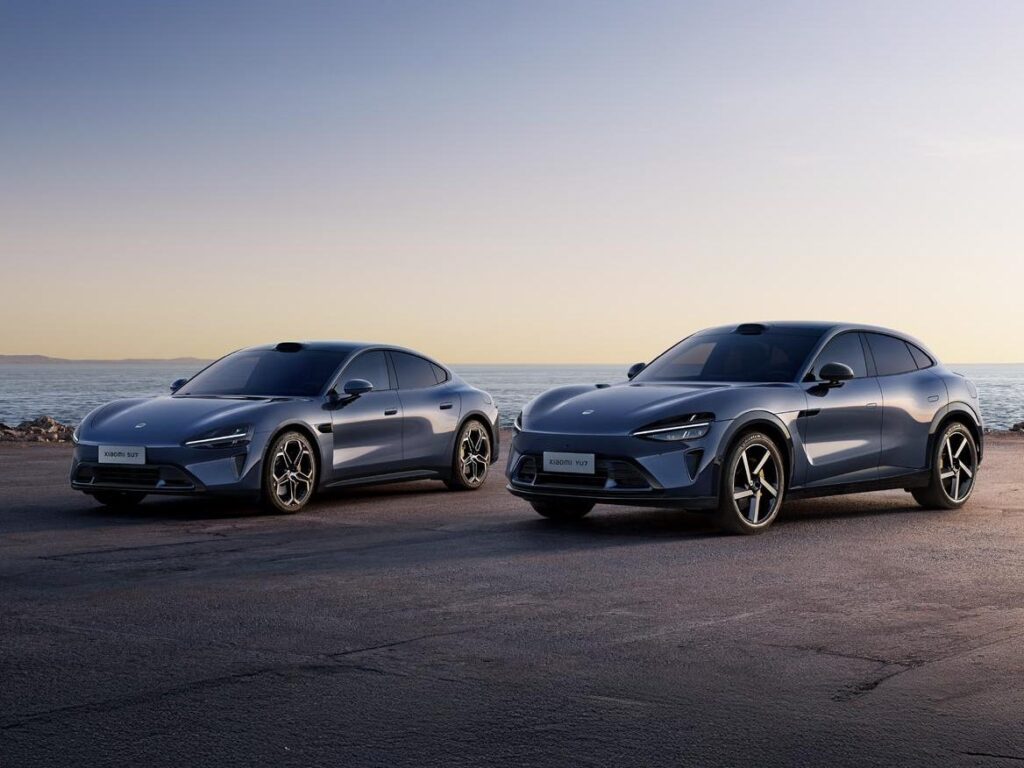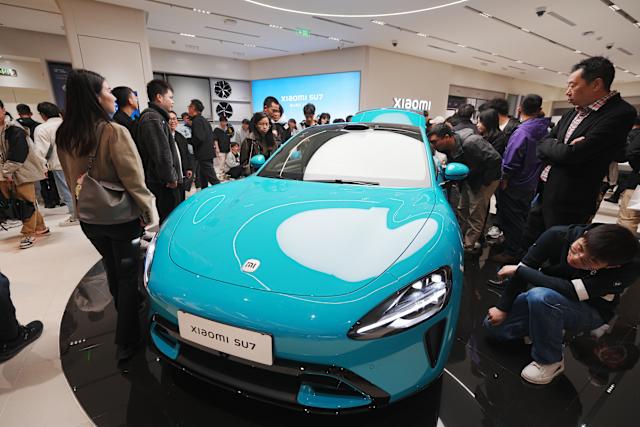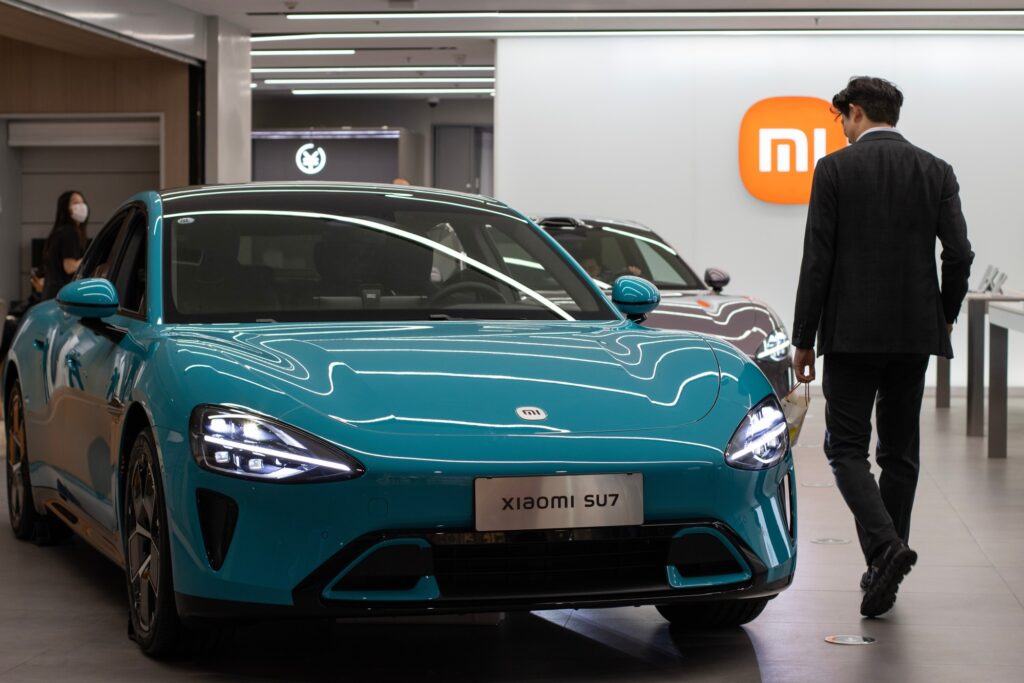In a bold move that has sent ripples across the global automotive industry, Xiaomi billionaire Lei Jun challenges Elon Musk with the unveiling of Xiaomi’s latest electric SUV. As tech giants continue to blur the lines between consumer electronics and electric vehicles, this development signals a new chapter in the growing rivalry between two of the world’s most ambitious entrepreneurs.
A Tech Tycoon Steps Into the Auto Arena
Lei Jun, often referred to as “China’s Steve Jobs,” has transformed Xiaomi from a budget smartphone maker into a global technology powerhouse. Known for its aggressive pricing sleek designs, and innovative products, Xiaomi has disrupted industries ranging from smartphones to smart home devices.
Now, Lei Jun has set his sights on the electric vehicle market a sector where Tesla, led by the ever charismatic Elon Musk, has long enjoyed a first mover advantage. The question on everyone’s mind: Can Xiaomi’s new SUV truly rival Tesla’s dominance?
Lei Jun challenges Elon Musk not just with ambition, but with a product that embodies Xiaomi’s core philosophy premium quality at accessible prices.
The Hot New SUV: More Than Just Hype
At a high profile launch event in Beijing, Lei Jun revealed Xiaomi’s first electric SUV, a sleek, futuristic vehicle packed with smart features, cutting edge technology, and an aggressive price point designed to undercut Tesla’s offerings.
The SUV, known as the Xiaomi SU7-X boasts impressive specs:
Range: Over 600 kilometers on a single charge
Acceleration: 0 to 100 km/h in just under 4 seconds
Autonomous Driving: Advanced L3+ self driving capabilities powered by Xiaomi’s proprietary AI
Interior Tech: 15 inch central touchscreen, smart assistant integration and seamless connectivity with Xiaomi’s ecosystem
In his speech Lei Jun challenges Elon Musk directly, stating, “We are not here to imitate. We are here to redefine mobility with intelligence, affordability, and innovation at its core.”

Tesla’s Dominance Under Threat?
Elon Musk has long dominated the conversation around electric vehicles. With Tesla’s range of electric cars and groundbreaking developments in autonomous driving, battery technology, and even humanoid robots, Musk’s empire has become synonymous with innovation.
But Lei Jun challenges Elon Musk at a time when cracks are beginning to show in Tesla’s armor. Rising competition from established automakers, supply chain disruptions, and growing scrutiny of Musk’s management style have opened the door for new challengers.
Xiaomi’s entry into the EV space isn’t just another product launch it’s a strategic play backed by massive resources. With over $10 billion earmarked for its automotive division over the next decade, Lei Jun’s ambition goes far beyond making headlines.
Why Xiaomi’s Move Is a Game Changer
Xiaomi’s SUV isn’t merely about competing with Tesla on price or performance. It represents the convergence of consumer technology and automotive innovation a fusion that few companies are better positioned to deliver than Xiaomi.
For years, Xiaomi has built an ecosystem of smart devices that seamlessly integrate with each other from smartphones and wearables to smart home appliances. Now, imagine that same ecosystem extended to your car. Navigation, entertainment, health tracking, home control all accessible from your vehicle, perfectly synced with your digital life.
Lei Jun challenges Elon Musk not only with hardware but with a connected experience that Tesla has yet to fully master.

China’s Growing EV Might
Another factor playing in Xiaomi’s favor is the sheer scale and momentum of China’s electric vehicle industry. China is already the world’s largest EV market with companies like BYD, Nio, and XPeng making significant strides in global markets.
With strong government support, a mature battery supply chain and a massive consumer base eager for innovation, Chinese EV makers are now setting their sights beyond domestic success.
In this context Lei Jun challenges Elon Musk with a distinctly Chinese advantage access to resources, talent, and infrastructure that can accelerate Xiaomi’s rise in the EV sector.
The Battle Beyond Cars
Interestingly, the rivalry between Lei Jun and Elon Musk isn’t limited to electric vehicles. Both leaders are at the forefront of broader technological revolutions:
Space Exploration: While Musk’s SpaceX dominates global headlines, China has ambitious space programs of its own, and companies like Xiaomi are investing in satellite and connectivity technology.
AI and Robotics: Both Tesla and Xiaomi are developing humanoid robots, smart assistants and AI-driven automation, signaling a race for leadership in next generation technologies.
Smart Ecosystems: Xiaomi’s ecosystem strategy mirrors Musk’s vision of a connected, technology driven lifestyle, from homes to transport and beyond.
It’s clear that Lei Jun challenges Elon Musk not just with a hot new SUV, but with a vision for the future that encompasses mobility, AI, and human centric technology.
What Industry Experts Are Saying
Analysts have mixed views on Xiaomi’s bold automotive push. Some see it as a natural evolution for a tech company with hardware expertise and deep pockets. Others warn that the automotive sector is notoriously complex, capital intensive, and fraught with regulatory hurdles.
Still the early response to Xiaomi’s SUV has been overwhelmingly positive. Pre-orders reportedly exceeded expectations, and social media buzz suggests strong consumer interest, especially among tech savvy, budget conscious buyers.
If Xiaomi can deliver on its promises high performance, competitive pricing, and seamless tech integration the EV landscape could be in for a major shake up.

A New Era of Competition
The tech world loves a good rivalry, and few are as intriguing as this one. As Lei Jun challenges Elon Musk, the battle for EV supremacy promises to drive innovation, lower prices, and offer consumers more choices.
While it remains to be seen whether Xiaomi can truly dent Tesla’s global dominance, one thing is certain. The age of the electric SUV is heating up, and the world is watching.
With his characteristic humility and determination, Lei Jun concluded the SUV launch by saying, “We believe technology belongs to everyone, not just the privileged few. And we are here to prove that.”
In that moment, it was clear Lei Jun challenges Elon Musk, not with empty words, but with a product and vision that could redefine the future of mobility.

